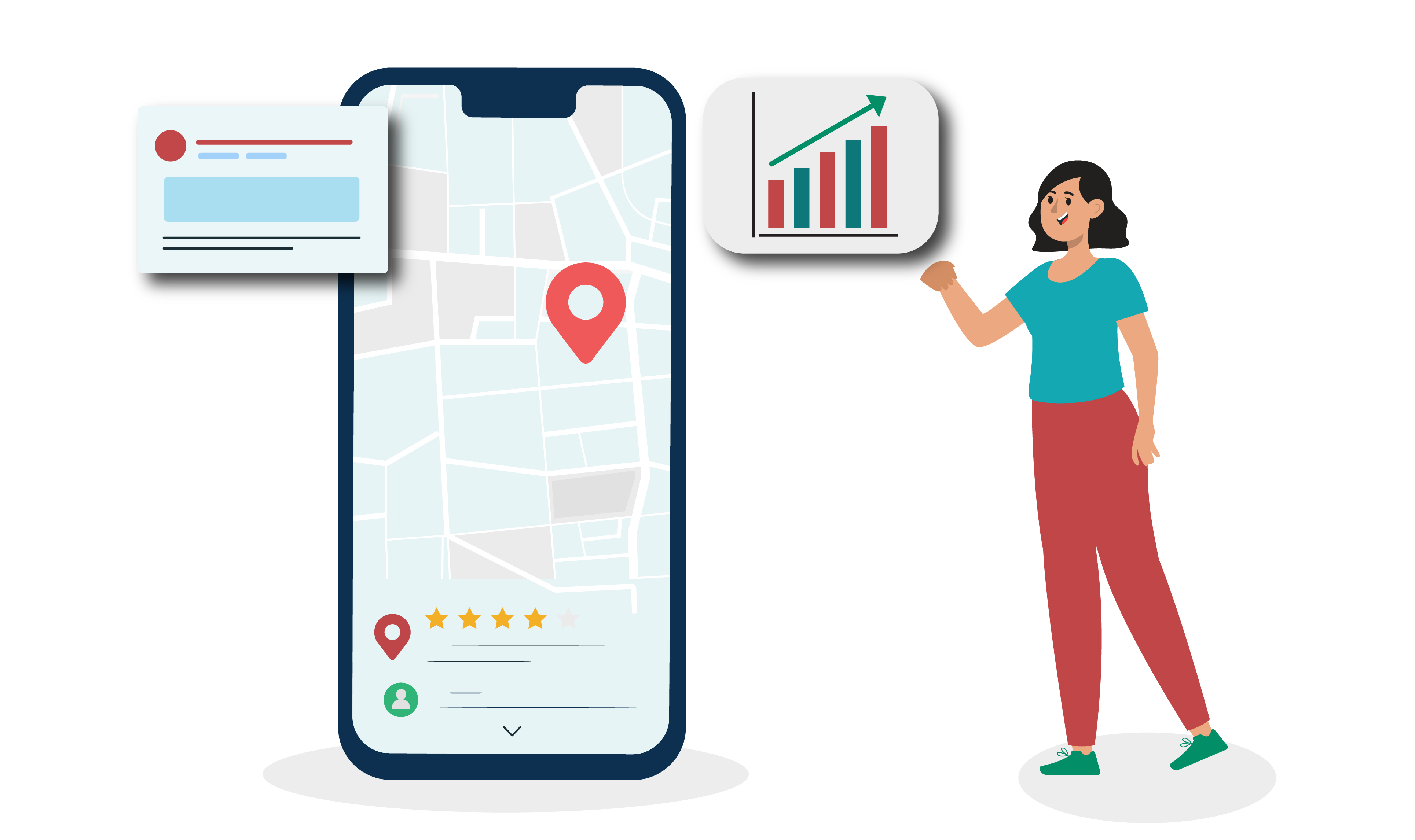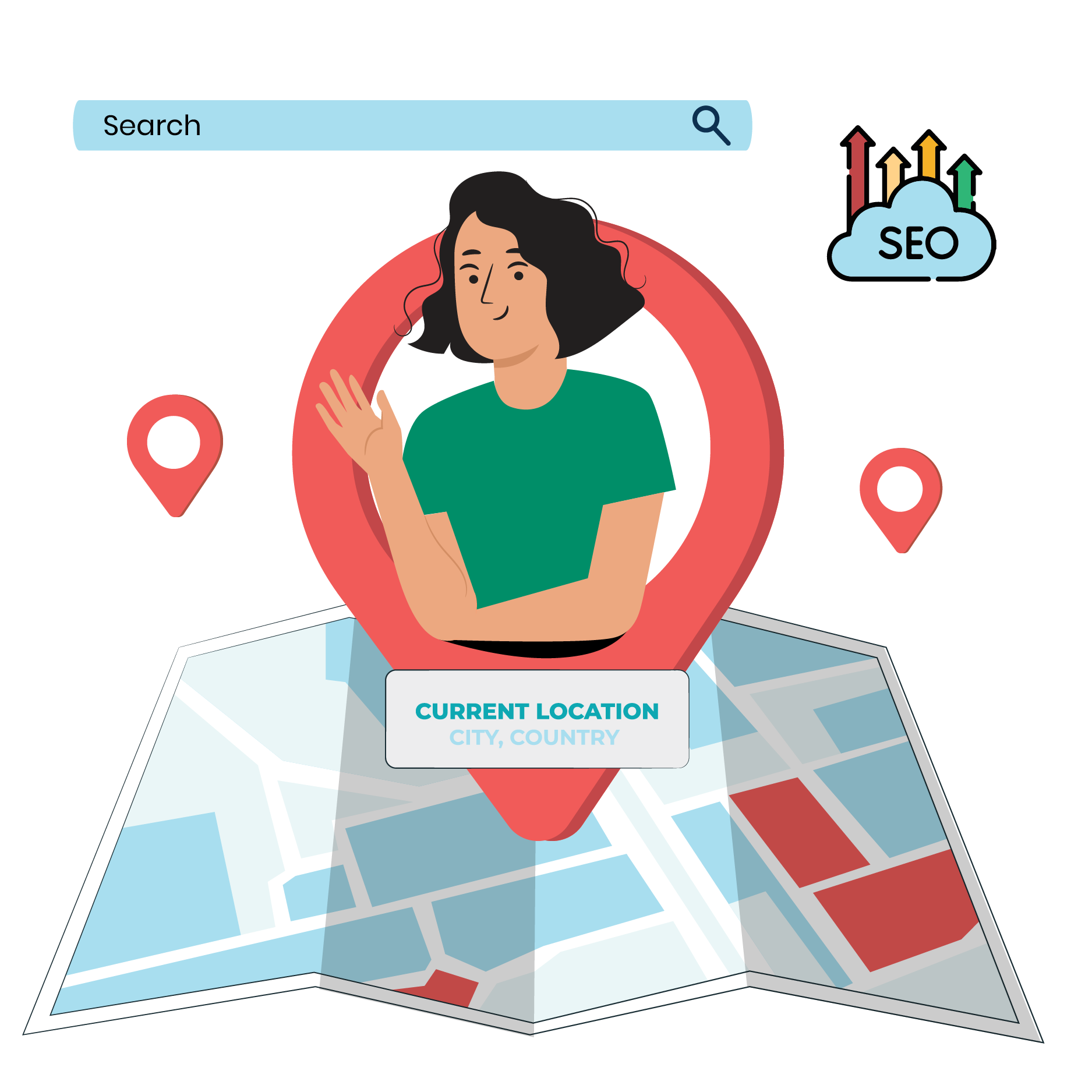SEO for Local Businesses: Boost Your Visibility in Your Area

Local SEO has become a critical component for businesses looking to serve their local communities and stand out in an increasingly competitive online environment. The evidence supporting this need is undeniable. A recent report from Forbes highlighted some powerful statistics:
- Four out of five people rely on search engines when looking for local services.
- 18% of local searches lead to a purchase within 24 hours.
- Half of mobile users visit a store within a day after conducting a local search.
Given this, effectively using SEO for Local businesses, increases visibility and drives foot traffic. As the demand for local search grows, so does the level of competition for prime local search results. This guide aims to assist you in mastering local SEO by helping you understand key ranking factors and the strategies to optimise your presence across multiple locations. Here's what you’ll discover in this guide:
- Understanding Local SEO
- Who Can Benefit from Local SEO?
- How Local Search Operates
- Ranking Factors for Local SEO
- The Difference Between Being Found and Being Selected
- Effective Local SEO Strategies
Let's dive into the basics of local SEO and how it can significantly benefit your business.
What is Local SEO?
Local SEO refers to a set of strategies that help increase your business's visibility in search engine results, specifically in the context of local searches. These searches include results from platforms such as Google Maps, local search packs, and other local listings.
It's important to recognise that local SEO isn’t confined to Google alone. There are numerous platforms where customers search for businesses, including Google Search, Google Maps, Apple Maps, Bing Local, and more. For instance, Apple’s Business Connect now allows businesses to claim and optimise their locations on Apple Maps, opening up new avenues for local exposure. With an estimated 75-100 million users of Apple Maps in the U.S., this is a valuable opportunity for local businesses to enhance their digital presence.
Despite these other platforms, Google remains the dominant search engine, and as such, we’ll focus on Google’s services for local SEO in this guide.
Who Can Benefit from Local SEO?
Any business that has a physical storefront or operates within a specific geographical area can benefit from local SEO. Whether you're a small business owner or an SEO professional managing a multi-location enterprise, local SEO is essential for driving foot traffic and building a loyal customer base.
It’s especially crucial for SEO for Local businesses like restaurants, stores, medical practices, and service-based companies, which rely heavily on local customers. If you want to be visible to potential customers in your area, local SEO is a necessity.
How Local Search Works: Local Pack vs. Organic Search Results
To better understand SEO for Local businesses, let’s compare how local search results differ from organic search results. Imagine you're looking for a good spot for a business lunch. You open up your preferred search engine and type in “places for business lunch near me.”
You’ll likely see two distinct sections in the search engine results page (SERP):
- The Local Pack: This section displays the top local businesses, along with details like business name, address, contact information, and ratings. The local pack typically comes from Google Maps and is often the first thing users see.
- Organic Search Results: Below the local pack, you’ll see the usual organic search results, which may include articles, websites, or blogs related to your search. While these results are relevant, they are not necessarily localised in the same way as the local pack.
A crucial point to note: appearing in the local pack or Google Maps is not directly related to your website’s content or domain authority. Instead, local search results are determined by different ranking factors.
Local SEO Ranking Factors
Google uses several key factors to determine how a business ranks in local searches:
- Relevance: How closely a business listing matches a user’s search query. For example, if someone searches for "plumbers near me," Google will prioritise listings that are relevant to plumbing services.
- Distance: How far the business is from the location specified in the search query. For a search like "restaurants near me," Google will prioritise businesses closest to the user’s location.
- Prominence: This relates to how well-known a business is, both online and offline. Factors like customer reviews, website traffic, and the number of local citations influence this factor.
The Two Key Aspects of Local SEO Success
When it comes to local SEO, businesses need to excel in two distinct areas:
- Being Found: This focuses on optimising your business’s visibility across local platforms like Google Maps and local packs. The goal is to ensure that your business appears in search results when potential customers are searching for services in your area.
To achieve this, you must ensure your business is listed in major local directories such as Google Business Profile, Yelp, and Bing Places. Consistency is key when it comes to your business’s NAP (Name, Address, Phone number) information across all platforms.
- Being Selected: Once your business appears in search results, the next step is to persuade users to click on your listing. This can be achieved through:
- A well-optimised Google My Business profile.
- Positive customer reviews.
- High-quality photos of your business or services.
- A compelling business description that clearly communicates what you offer.
Your business’s reputation plays a significant role in this process. Positive online reviews, testimonials, and star ratings can help your business stand out in a crowded market, ultimately leading to more customers choosing you over your competitors.
Local SEO Strategies For Local Business
Now that we’ve covered the basics of local SEO, it’s time to dive into actionable strategies you can implement to boost your visibility in local searches:
1. Claim and Optimise Your Google My Business Profile
Ensure that your Google My Business (GMB) profile is complete and accurate. Add your business name, address, phone number, website, hours of operation, and a clear description of your services. Don’t forget to add high-quality images to make your listing stand out.
2. Use Local Keywords
Incorporate local keywords into your website content, such as “best [service] in [city]” or “top [service] near me”. Use these keywords in your website’s title tags, meta descriptions, headers, and throughout the content.
3. Encourage Online Reviews
Reviews are an important ranking factor for local SEO. Encourage your customers to leave positive reviews on Google and other review sites relevant to your industry. Responding to reviews, both positive and negative, shows that you care about your customers' experiences.
4. Engage with Local Community
Engage with your local community through partnerships, sponsoring events, and being active in local events. This helps build your local authority and earn backlinks from local websites, which can improve your rankings.
5. Optimise for Mobile Searches
Ensure your website is mobile-friendly, as local search traffic comes primarily from mobile devices. A responsive and fast-loading website ensures a better user experience and can positively impact your rankings.

Final Word
To sum up, local SEO is a powerful tool for businesses looking to improve their visibility in local searches. By focusing on key ranking factors such as relevance, distance, and prominence, and implementing strategies like optimising your Google My Business profile, using local keywords, and engaging with the local community, you can improve your chances of success in local SEO.
As competition for local search traffic continues to rise, it’s crucial to stay ahead of the game by consistently optimising your online presence. Start implementing these strategies today to ensure your business is found by potential customers in your area.